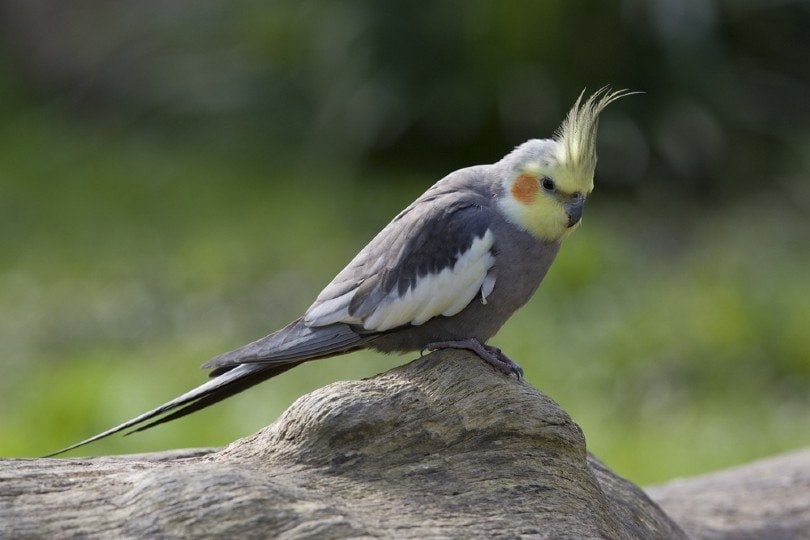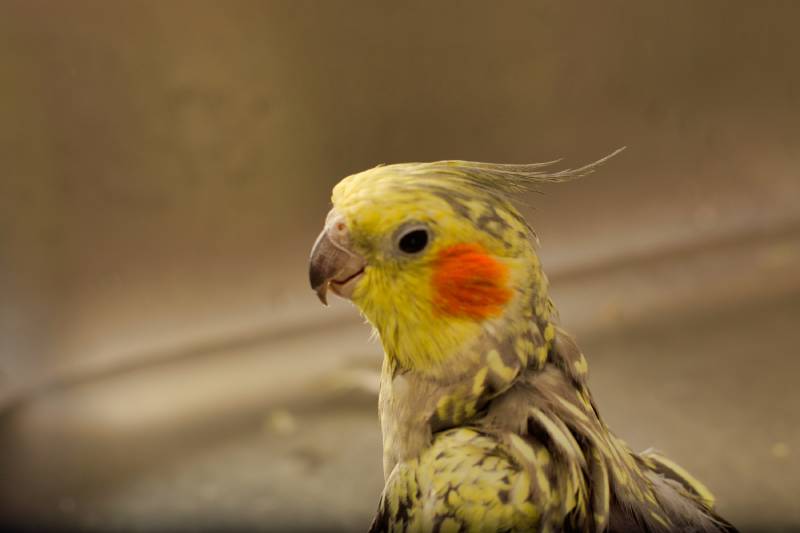Is Beak Grinding in Cockatiels Bad? Vet-Verified Bird Behavior
Updated on
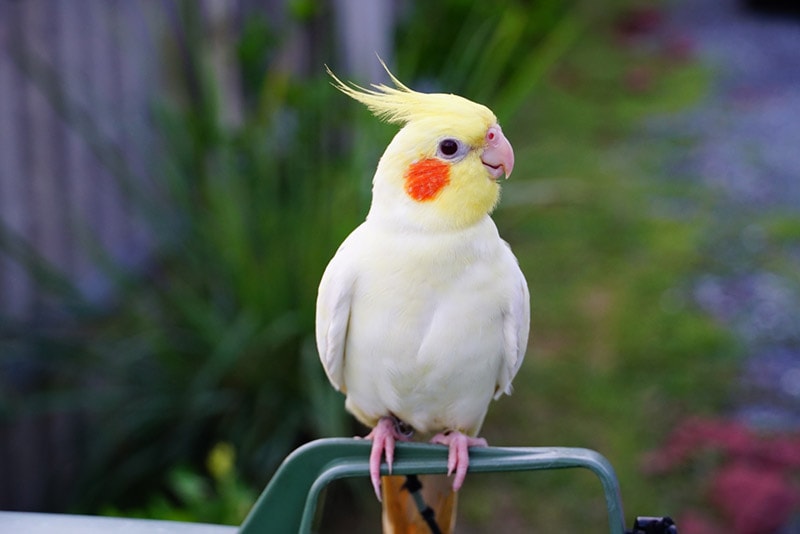
Birds have some strange behaviors that might have you scratching your head. The cockatiel is no exception. How do you explain a pet tapping their beak against a mirror? Or singing a song like they knew what the lyrics meant? On the list of habits that may baffle you is beak grinding. It sounds painful, but is something wrong?
The short answer is no. It doesn’t hurt your cockatiel. Instead, it’s a sign of contentment. It’s actually something you want to hear.
Reasons for Beak Grinding
Scientists aren’t sure why cockatiels grind their beaks. However, several factors point to it being a benign behavior. It’s a ritual for many birds, occurring like clockwork before they go to sleep at night. Some cockatiels also do it before napping. The pattern suggests a routine to settle down and prepare for rest. Their body language also supports this hypothesis.
Usually, pet birds are on their roost. They aren’t showing signs of stress or squawking. By all appearances, they seem at ease. You may notice other signs that your cockatiel feels relaxed, such as preening, wing stretching, and standing on one foot. You may even see their eyes starting to close while still carrying on with the beak grinding. It comes from rubbing their upper and lower jaws together.
Beak grinding is usually a soft sound. The only time it might raise a red flag is if your pet does it continuously. That’s especially true if you notice any changes in their behavior, vocalization, or appetite.
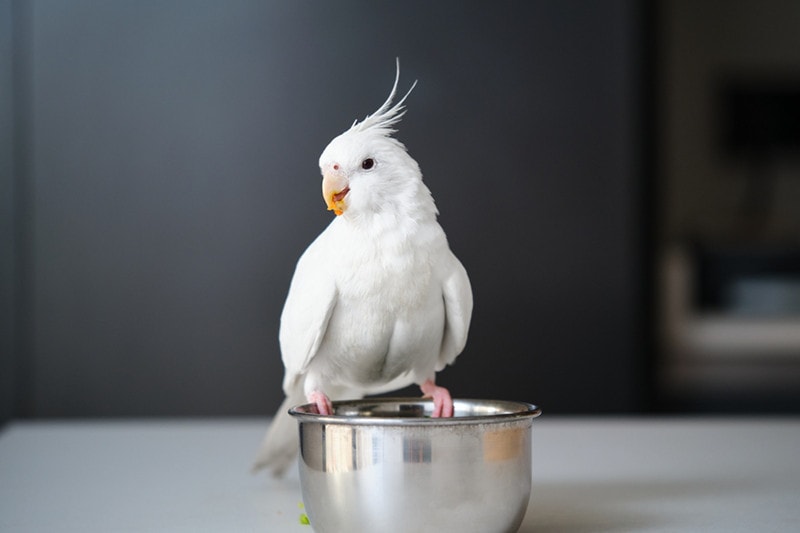
What Beak Grinding Isn’t
Grinding is a misnomer since it has nothing to do with the behavior. It isn’t a bird trying to wear down their beak. Toys or a cuttlebone will take care of that task. It’s not painful, as we mentioned earlier. A cockatiel wouldn’t do it if it hurts. Some people may equate this action with teeth grinding, a sleep-related movement disorder in humans that may have psychological or physical causes.
A cockatiel that engages in beak grinding is not stressed. Birds deal with that emotion in very different ways.
Signs that a pet is stressed include the following:
- Loss of appetite
- Changes in vocalization patterns
- Pacing
- Feather plucking
- Self-mutilation
- Biting
- Tail bobbing
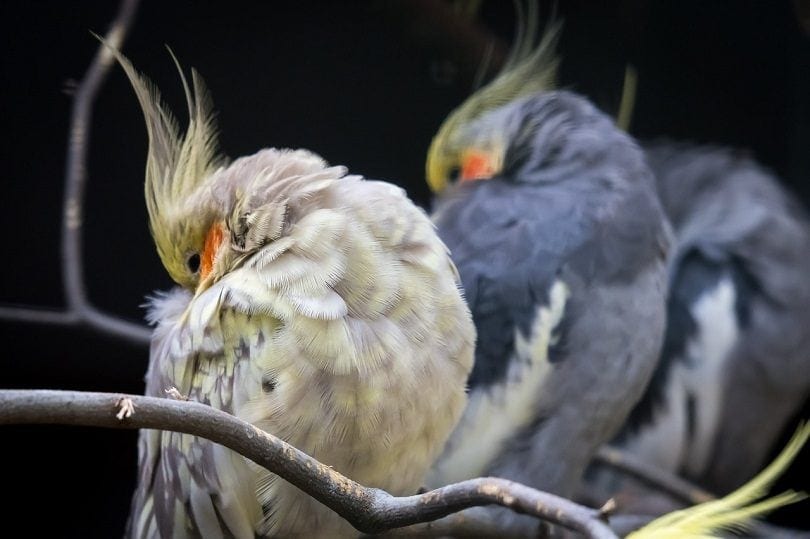
Other Beak-Related Sounds
Grinding isn’t the only sound that cockatiels make with their beaks. Other things you may hear your bird do include clicking when they open and close their beak rapidly. This one differs from grinding since it’s most often associated with playfulness or excitement. However, there’s a fine line, with the latter between something positive and a threat. Therefore, context is essential.
A cockatiel may also bang their beak on objects. It’s evidently a sign they want attention, which could make it a part of courtship behavior. Related behaviors include foot stomping, straight-up crest, and strutting. Another beak-related behavior is snapping. It is a sign of aggression in a highly agitated bird. Take it for the warning that it is.
Other indications of an upset cockatiel include the following:
- Hiss-like sounds
- Flat crest
- Flight stance
- Fanned tail
- Iris pinned
- Lunging to bite
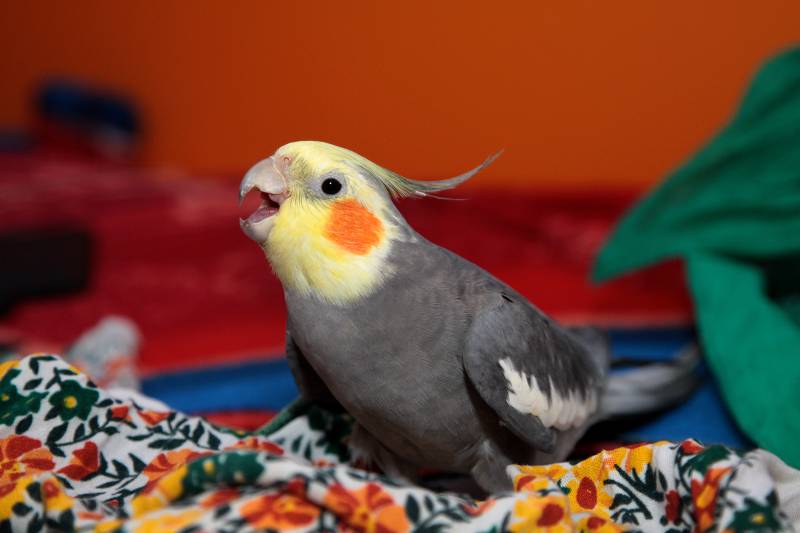
Final Thoughts
Cockatiels, like many birds, are sometimes seen as creatures of habit. They often feed at specific times of the day. They also call and sing, usually in the morning and again during the late afternoon or early evening. These rituals are undoubtedly comforting to them, not unlike beak grinding. It’s part of their nighttime routine to get ready for sleep and usually not a cause for concern.
Featured Image Credit: Miss Nachcha Chayapan, Shutterstock




